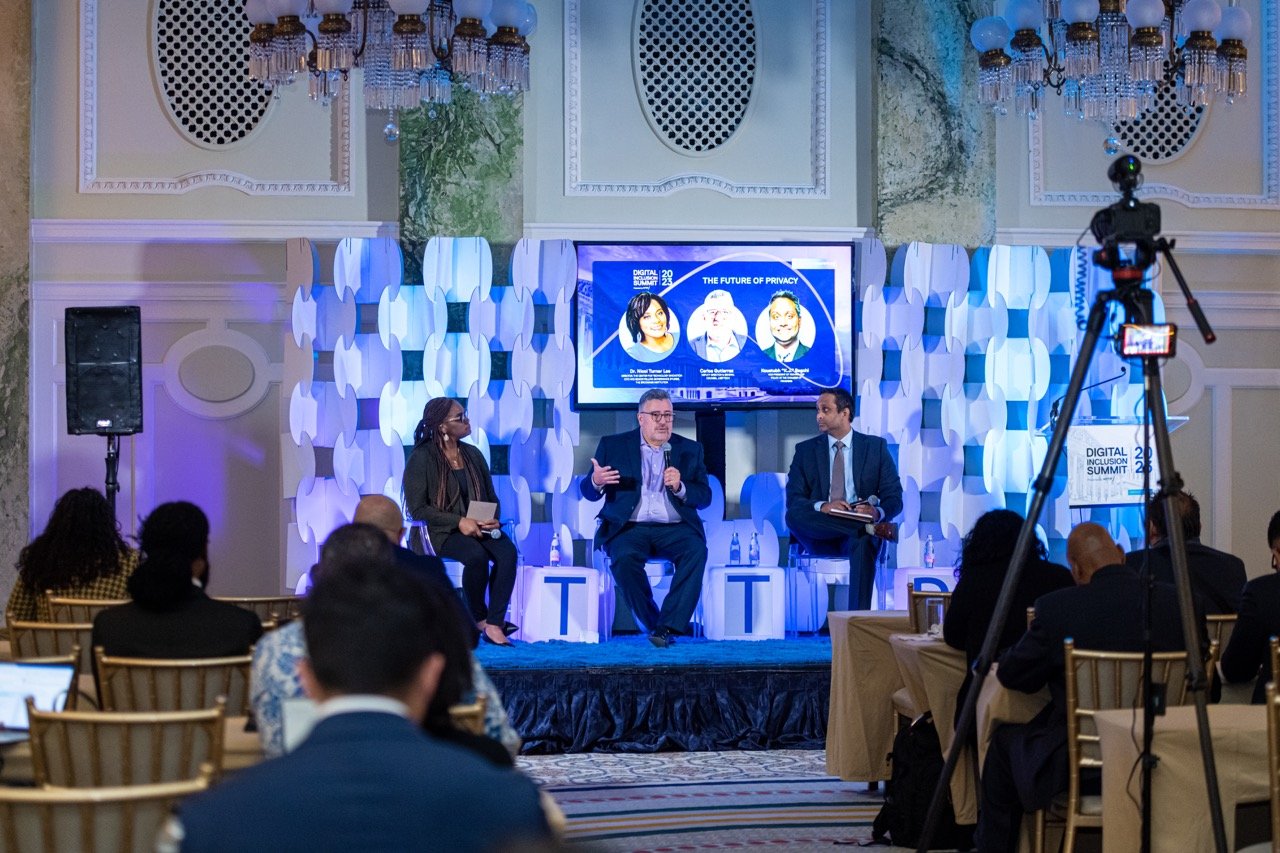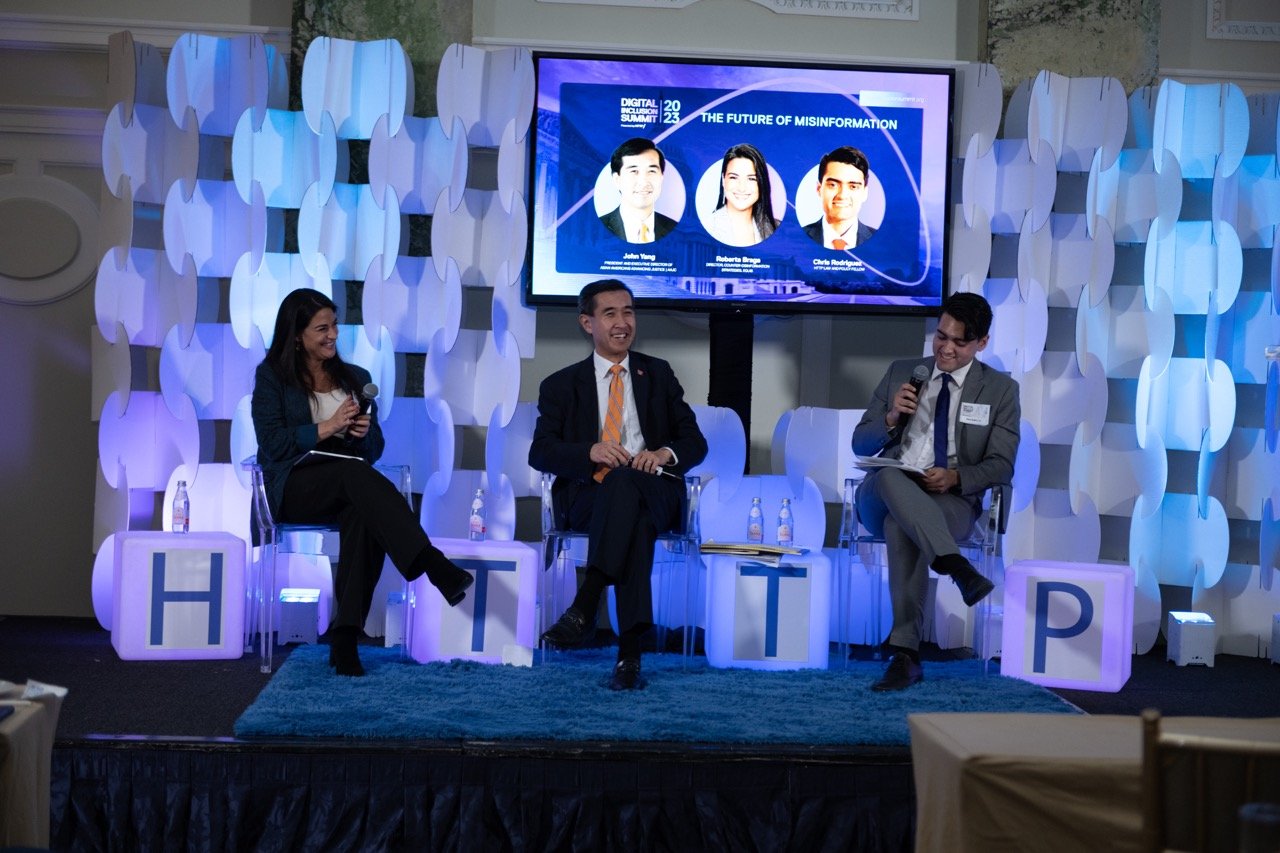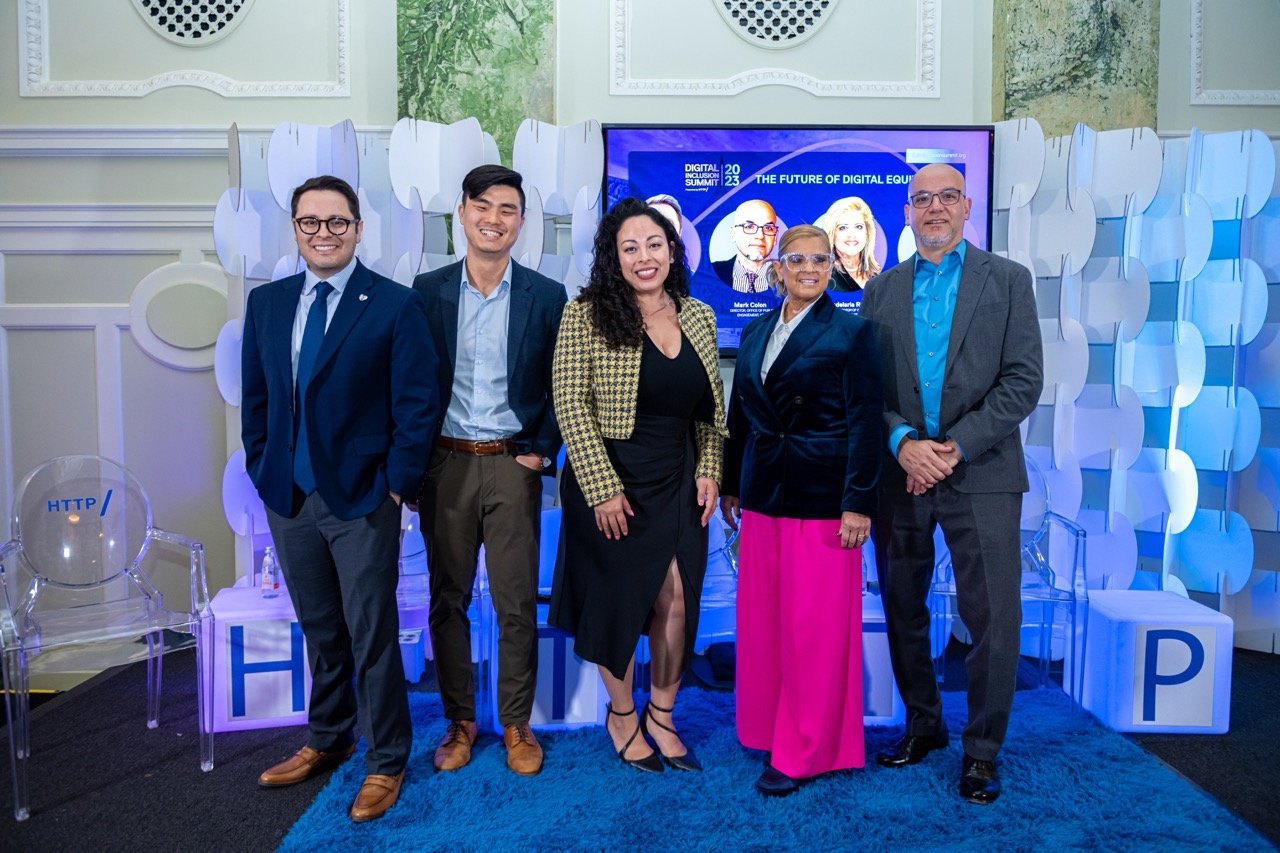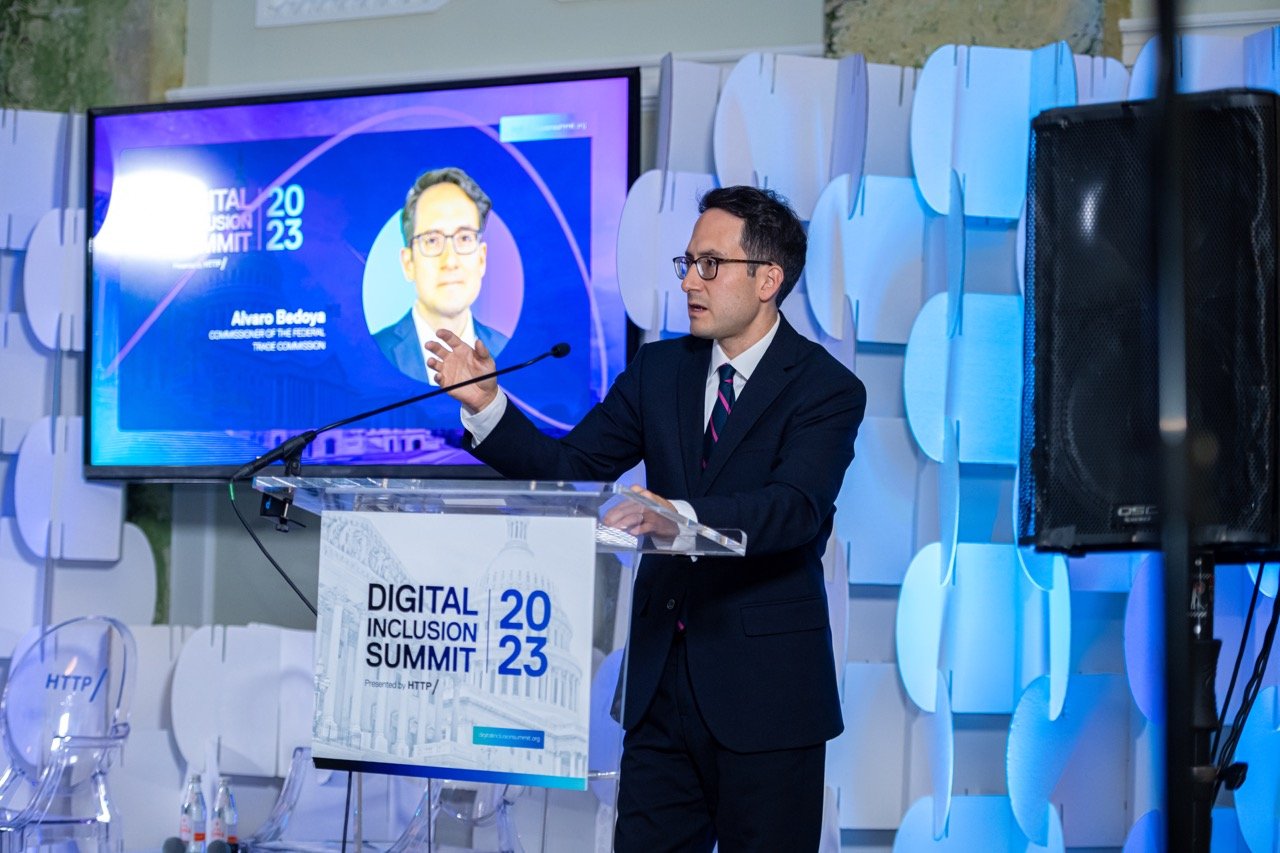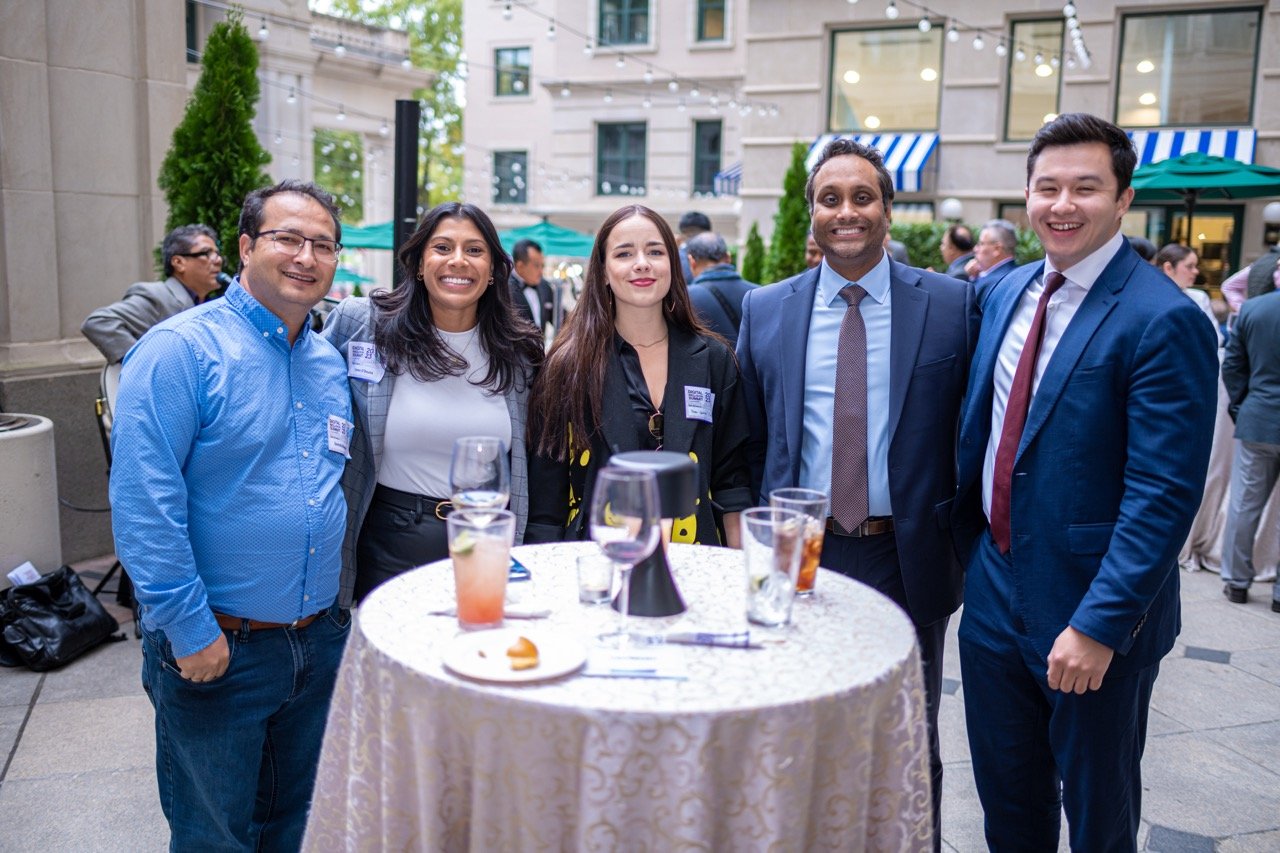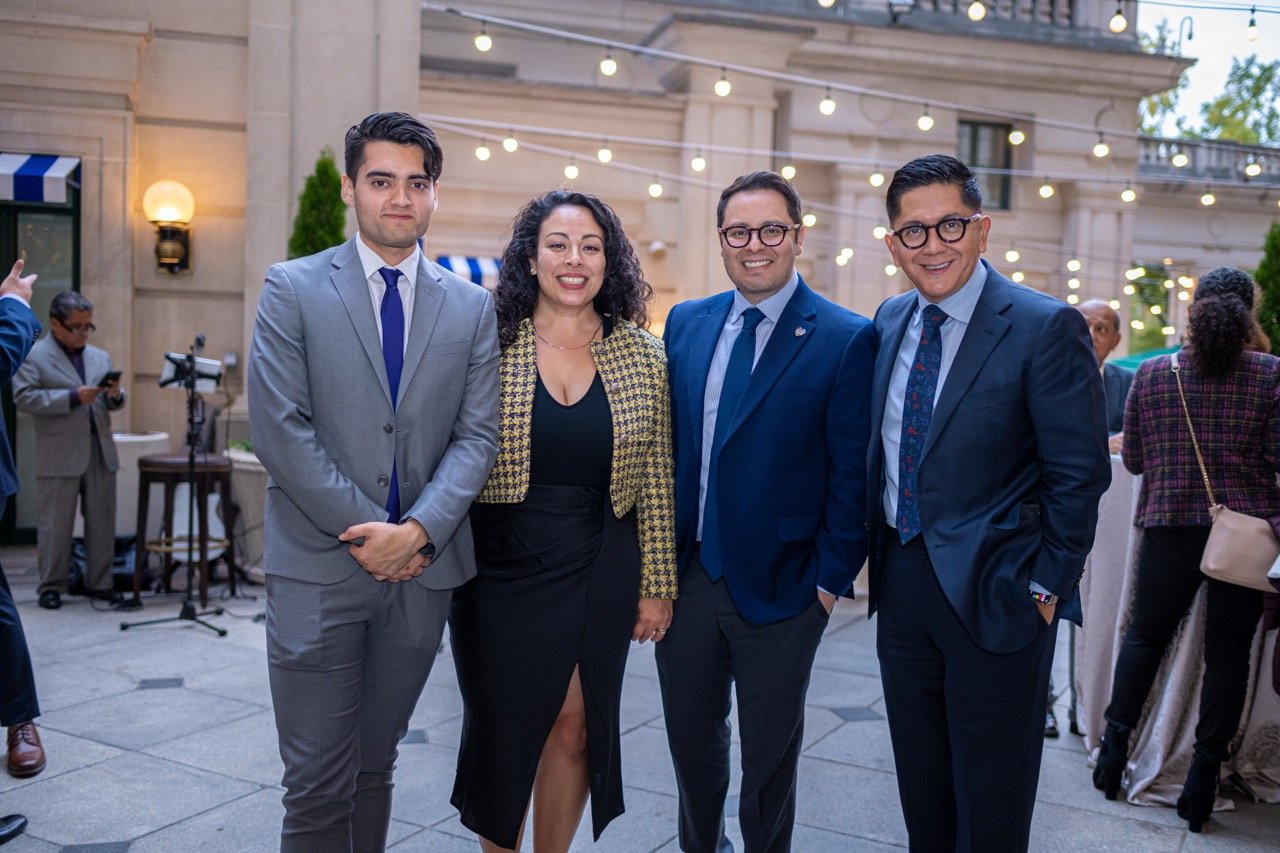2023 in Review: Digital Inclusion Summit
In October 2023, HTTP hosted its annual Digital Inclusion Summit focused on emerging technology and privacy issues that will impact U.S. Latinos. The event consisted of four panels: The Future of Privacy, The Future of Misinformation, The Future of Artificial Intelligence and the Future of Digital Equity. Senator Amy Klobuchar and FTC Commissioner Alvaro Bedoya gave special remarks on the importance of including U.S. Latinos when thinking about emerging technology issues. Read on for highlights of each panel and we encourage everyone to check out the full day on YouTube here or below.
HTTP Board Member and CEO of MANA, Amy Hinojosa, kicked off the summit by explaining to attendees that “if you are not at the table – then you are on the menu” underscoring the vitality of the Latino viewpoint in often sophisticated technology conversations. During the Future of Privacy Panel, K.J. Bachi, asked “why people of color should care about comprehensive data privacy legislation?” Dr. Nicole Turner Lee opined that “having comprehensive privacy legislation is like having comprehensive health insurance, right? It’s not necessarily dictated in what aspects, in the most granular fashion, are going to be protected because it still allows you the leeway to balance innovation with your individual privacy rights . . . having a comprehensive system that allows for clear guidelines on what is allowable, what is not, where there are disclosures that need to be made, really benefits us because we are the wild west for technology.” Carlos Gutierrez of LGBTTech added that “light touch regulations'' that allow the technology industry to flourish must add guardrails because without them you will find a lot of abuse against marginalized communities - see the context of facial recognition. View the full panel discussion here.
During the Future of Misinformation Panel, HTTP’s Chris Rodriguez, asked “why is dis/misinformation having a larger reach amongst marginalized communities?” Roberta Braga formerly of Equis Research and founder of Digital Democracy Institute of the Americas (DDIA), suggest based on her research that it is likely a “confluence of factors such as: a society wide move away from traditional media, the segregation and amount of choice we have to pick where we consume information based on who we identify with, and a growing sense of distrust.” President and CEO of Asians Americans Advancing Justice (AAJC), John Yang, added that there is “a click bait aspect to this, right? This has always been an issue in society. That tension between what is popular versus populism and there are always going to be people that want that attention for attention’s sake, and some of it for political gains, and then trying to modulate that against free speech . . . this will help determine what the response should be.” View the full panel discussion on Disinformation/Misinformation here.
In special remarks from Senator Amy Klobucahr argued that “we all know today that you can’t fully participate in our society if you can’t get online. High speed internet is necessary for everything from education to healthcare to economic opportunity. As co-chair of the bipartisan Senate broadband caucasus, I have always believed that if they can have high speed internet in Iceland right next to active volcanoes spewing lava, then maybe just maybe we can get [internet] to every zipcode in the USA.”
Aspen Institute’s Zaki Barzinji asked the Future of AI Panel “what are some of the top concerns that we should be thinking about” with respect to the dangers of AI and marginalized communities. Susan Gonzales of AIandYou stated that “the concept of AI literacy, meaning a basic understanding of what it is, is where we need to start” in regard to how policymakers think about the technology. Many people in Washington D.C. discuss AI at a high level but still do not appreciate enough the fundamental issues of AI literacy amongst marginalized communities. Dr. Karla Badillo-Urquiola from the University of Notre Dame echoed the importance of digital literacy but added that we need to think about “who is in the room and who is not. The issue is that even though we’re having these conversations, a lot of the people that need to be at the table aren't and there needs to be more of a move in that area.”
Special Remarks by FTC Commissioner Alvaro Bedoya illustrated that machine learning is being used in all aspects of society and oftentimes tainted data ends up being used at the disadvantage of marginalized communities. Commissioner Bedoya argued that it is on the private sector and on the government to address tainted data sets used in machine learning. Bedoya stated that “our people should not be at a disadvantage when decisions are made about them through machine learning.”
Ji Soo Song from the Department of Education asked the Future of Digital Equity Panel of Latino specific issues in the digital divide. NTIA’s Mark Colon and Mara Reardon-Candelaria described the NTIA’s messaging strategy to avoid the politzation of digital equity by creating a coalition of covered populations from IIJA’s covered populations. Colon stated that creating this coalition was very powerful because the covered groups – veterans, rural communities, senior citizens, and historically marginalized communities – are not mutually exclusive. Alejandro Roark, former Executive Director of HTTP and FCC bureau chief argued that “it’s is not just access to physical infrastructure but also ensuring that [Latinos] are safe once online . . . because it is the internet that will democratize opportunities” in education, healthcare, and generally equality in different facets of society.
HTTP is thankful for all the attendees and panelists and sponsors that contributed to the 2023 Digital Inclusion Summit. This blog only represents some of the highlights from the Summit and HTTP encourages everyone to view and join the conversation online by clicking here.


